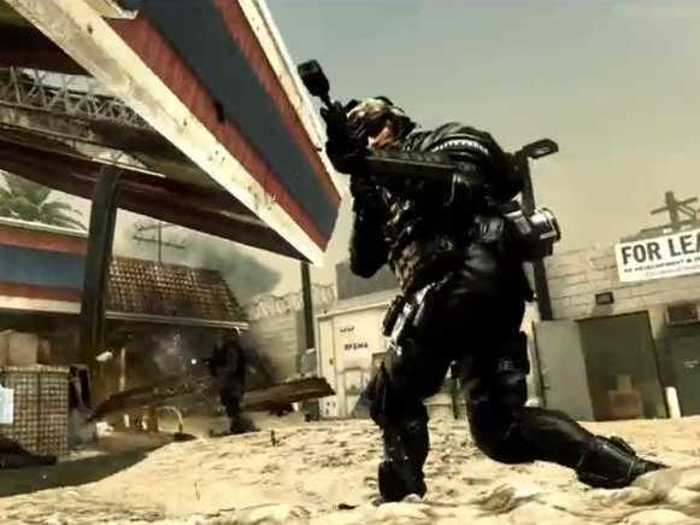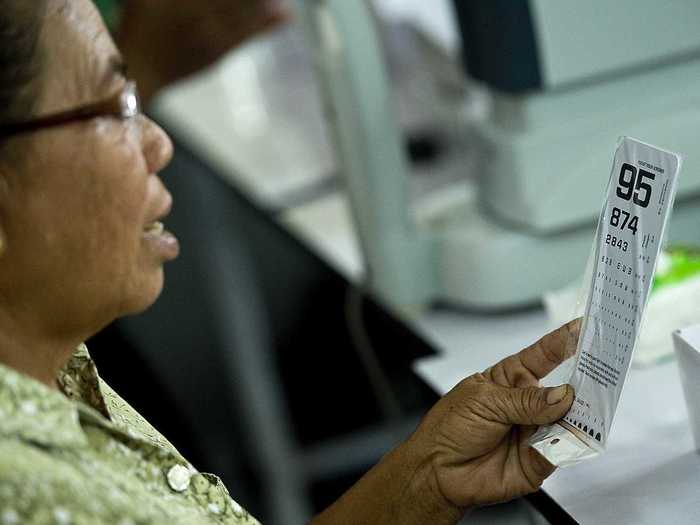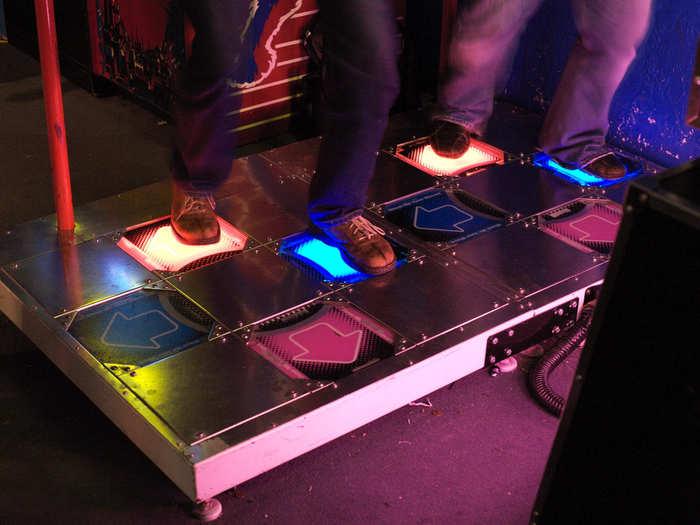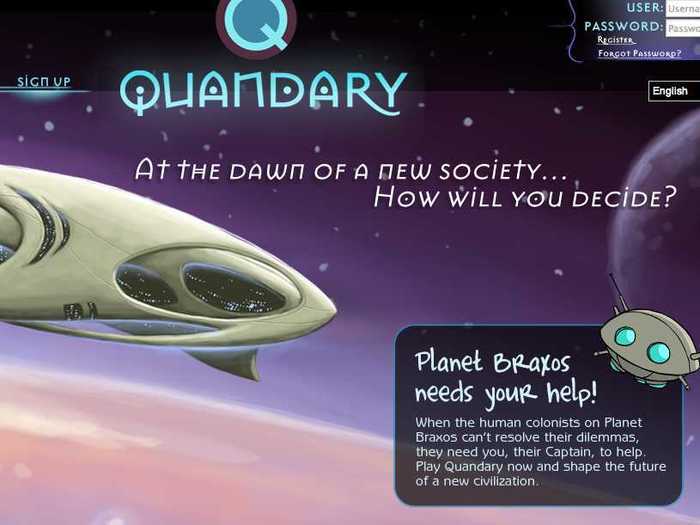11 Ways Playing Video Games Makes You Smarter And Healthier
A driving game improved memory and focus in older adults.

People who play action-based games make decisions 25% faster.

Fast-paced video games typically require quick thinking to avoid a virtual death. In real-life situations, active gamers have a better sense of what is going around them and are able to make decisions faster, according to scientists from the University of Rochester.
In the one study, participants aged 18 to 25 were split into two groups. One group played 50 hours of the action video games "Call of Duty 2" and "Unreal Tournament," and the other group played 50 hours of the strategy game "The Sims 2." The action game players made decisions 25% faster in a task unrelated to playing video games, without sacrificing accuracy.
"Action game players make more correct decisions per unit time. If you are a surgeon or you are in the middle of a battlefield, that can make all the difference," study researcher Daphne Bavelier said in a statement.
Video games improve vision.

Another study led by Daphne Bavelier of the University of Rochester, showed that video games improve vision by making players more sensitive to slightly different shades of color, known as contrast sensitivity.
People who played action-based video games — particularly first-person-shooter games — were 58% better at perceiving fine differences in contrast, the researchers said.
"When people play action games, they're changing the brain's pathway responsible for visual processing," Bavelier said in a statement. The training might be helping the visual system to make better use of the information it receives.
Surgeons improved their laparoscopic skills by playing video games.

Playing video games on the Nintendo Wii improved skills needed for laparoscopic surgery, a procedure in which a thin tube with a camera is inserted into the abdomen to see organs on a screen, instead of cutting patients wide open.
The study, published in the journal PLOS One, found that doctors who spent one month playing either Wii Tennis, Wii Table Tennis, or a balloon warfare game called High Altitude Battle performed better in simulated tasks designed to test eye-hand coordination and movement precision.
The Nintendo Wii "may be adopted in lower-budget institutions or at home by younger surgeons to optimize their training on simulators before performing real procedures," the researchers concluded.
Video games encourage physical activity.

Endless hours parked in front a computer screen generally does not lead to weight loss. But a new breed of video games, called "exergames," that pair virtual worlds with exercise could get people who are less inclined to workout to start moving.
Endocrinologist Stanley Hsia is currently studying whether people who play Dance Dance Revolution — a game that requires players to move their feet in time with signals on a screen are at lower risk of type 2 diabetes than those who run on a treadmill.
Video games may also be more effective at changing behavior. In a study from the University of Indiana, people who received workout advice through a game called Second Life reported more positive changes in healthy eating and physical activity than people who went to a traditional gym, even though weight loss was the same in both groups.
Children with dyslexia had better reading ability after playing video games.

A small study in the journal Current Biology found that playing action video games helped children with dyslexia read faster and with better accuracy.
Twelve hours behind the controller "improved children’s reading speed, without any cost in accuracy, more so than one year of spontaneous reading development and more than or equal to highly demanding traditional reading treatments," the researchers write.
By improving attention span, video games leads to better reading skills.
Video games can help burn victims manage pain.

Researchers at the University of Washington are experimenting with virtual reality games as a way to distract burn victims from their pain.
"Being drawn into another world drains a lot of attentional resources, leaving less attention available to process pain signals," according to the university's HITLab.
In a preliminary case study, two patients with severe burns played Nintendo games while their wounds were being treated. Both patients reported feeling significantly less pain while playing the game.
Video games can teach us about biological processes.

Video games are not just for entertainment. They can also "help solve educational and scientific challenges," according to Stanford physicist Ingmar H. Riedel-Kruse, who designed a collection of action games to teach people about biological processes.
The games involve a single-celled organism contained inside a square fluid chamber. The player interacts or "controls" the living paramecia by applying electrical fields using a hand-held device that resembles a video game controller.
Since the reaction of the paramecia is real and not based on simulations, the games can teach players about micro-organismal behaviors, diffusion, and other biophysical concepts, the authors write in a study published in the journal Lab on a Chip.
They add: "Students might be motivated to discuss and understand the observed phenomena in order to identify other winning strategies in such games."
Video games can make us better people.

Slow-moving strategy games can also change our thinking behavior so that we can learn to make wiser, more ethical decisions in real-life scenarios.
That's the idea behind Quandary, a game that places human colonists on the Planet Braxos and requires the player, or captain, to help work out dilemmas among the settlers.
Writing for Boston.com, Scot Osterweil, creative director at MIT’s Education Arcade explained: "We don’t believe that playing the game will automatically help players take better perspectives in their own lives, but we think the game represents a playful way of introducing ideas that can be further developed through reflective conversation with others, and through additional activities provided on the website.
Cancer patients who play video games have a more positive outlook.

Re-Mission is a third-person shooter game created by HopeLab to help young adults with cancer. In the game players control a nanobot named Roxxi who races through the human body fighting cancer with various weapons, such as the radiation gun. Players must also monitor patient health, learning about different forms of treatments and how they work along the way.
In a trial of 375 patients, researchers found game players took their antibiotics more consistently and were more likely to adhere to chemotherapy treatments than others. The players also knew more about cancer and had a stronger belief in their own ability to reach goals while undergoing cancer therapy.
Pre-schoolers who play video games have better motor skills.

A small study from Deakin University in Australia found that children ages three to six who played interactive games, like Wii, had better object motor skills than those who played non-interactive games. This includes skills like kicking, catching, throwing, and bouncing ball.
It's likely that electronic games improve hand-eye coordination, but researchers also note that children who already have better object motor skills could have been more drawn to interactive games in the first place.
Popular Right Now
Advertisement
